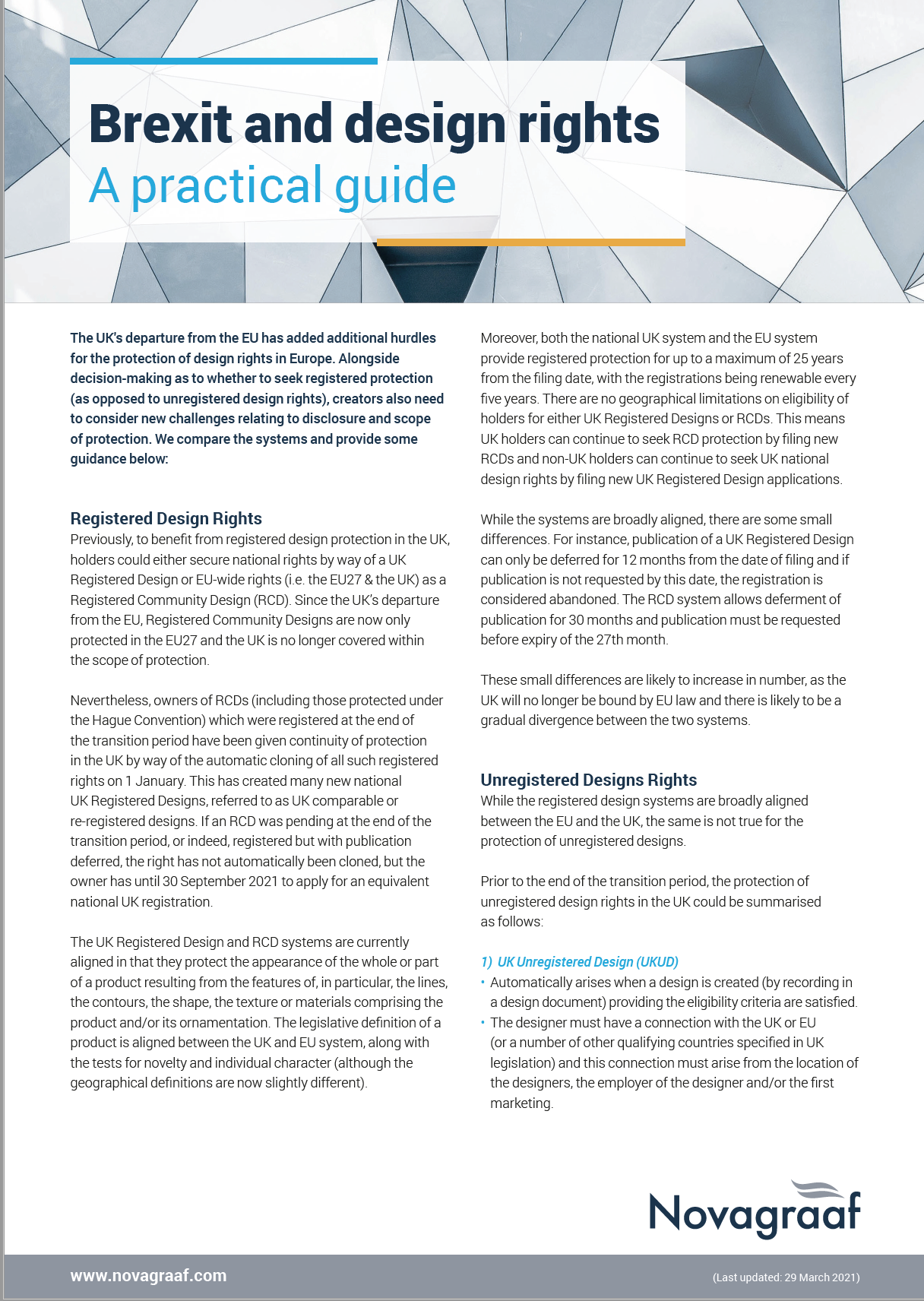Brexit and design rights: A practical guide

Prior to the end of the Brexit transition period, there were a number of ways to benefit from design protection in the UK. As with many areas of IP, the UK’s departure from the EU has changed the way designs are now protected in the UK. Vanessa Harrow, Managing Director of Trademarks in the UK, sets out the changes and how this affects the considerations for IP owners.
As with many topics, the UK’s departure from the EU and the impact on both registered and unregistered design rights is far from straightforward. While steps have been taken to ensure continuity of protection, this has left an already complex landscape of rights even more difficult to navigate.
Download our factsheet below for a comparison of registered and unregistered design rights in the UK and EU following Brexit, and to read our top tips for brand owners on building an effective design right strategy.
Design rights: the story so far
- Previously, UK holders could secure national design rights by way of a UK Registered Design or rights throughout the entire EU (i.e. the EU27 & the UK) as a Registered Community Design (RCD).
- Since the UK’s departure from the EU, Community Registered Designs are now only protected in the EU27 and the UK is no longer covered within the scope of protection.
- However, rights registered before the end of the transition period were automatically cloned, as was the case with EU trademarks.
- Those with pending design applications have until 30 September 2021 to apply for an equivalent UK national registration.
- While the Registered Design systems are broadly aligned between the EU and the UK, the same is not true for the protection of unregistered designs.
- In particular, the Unregistered Community Design (UCD) right no longer provides protection in the UK, although a new UK right (Continuing Unregistered Design, CUD) has been established in its place.
- However, there is a significant difference between the definition of protectable designs covered by UCDs (now CUDs) and pre-existing UK Unregistered Design (UKUD) right, with the former also covering 2D designs and surface decoration. This gap in protection has therefore also been addressed by the creation of another unregistered right in the UK, called the Supplementary Unregistered Design (SUD).
- The new separate system of unregistered design rights raises some interesting considerations for designers when looking at disclosure.
As a result, design rights holders and new applicants need to be sure to understand what rights have been automatically created in the UK following Brexit, including if they are needed, and the key deadlines for any pending rights. Strategies also need to be updated in light of future filings, including the impact on disclosure strategies, and for the impact on changes to the unregistered design right scope of protection. This is particularly important for IP owners operating in more than one territory.
Please download the Brexit and design rights factsheet below for a more detailed explanation and practical advice.
Vanessa Harrow is Managing Director of Trademarks at Novagraaf in the UK and a Chartered UK Trademark Attorney.
